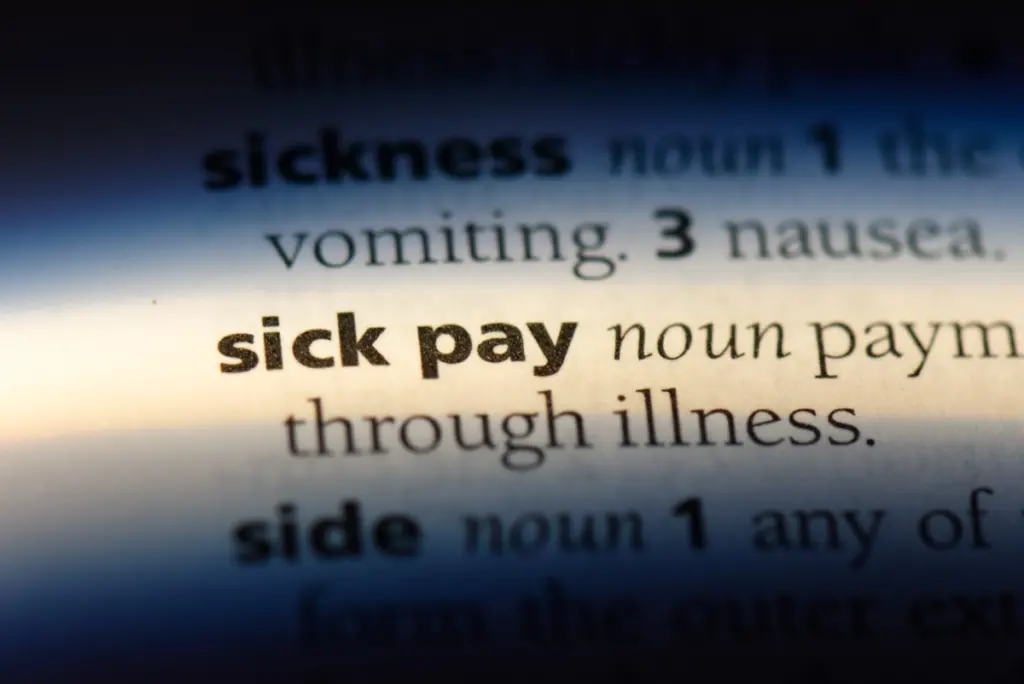Navigating the landscape of sick pay when you’re self-employed in the UK can be a complex journey filled with many questions and uncertainties. You may wonder, can self-employed claim pay? Or perhaps, what can I claim if I am self-employed and off ill? The answers to these and many other questions are not always straightforward.
For the self-employed, the rules surrounding sickness benefits differ from those for employees. Knowing your rights, entitlements, and responsibilities is vital to ensuring you’re covered should you ever need to take time off due to illness or injury.
This guide is designed to unravel the intricacies of sick pay for self-employed UK individuals. From understanding the different types of sickness benefits for self-employed to exploring how to claim sick-pay when self-employed, we will delve into every aspect to provide you with a clear and concise roadmap.
Blog Contents:
show
Understanding Sick Pay for the Self-Employed
When you’re self-employed, the sick pay rules vary compared to regular employees. It’s essential to get acquainted with the different aspects that pertain to sick pay for self-employed individuals. Here’s what you need to know:
Definition of Self-Employed Sick Pay
Self-employed pay when off sick refers to the various benefits, allowances, or insurances you may be entitled to claim if you’re self-employed and unable to work due to illness or injury. Unlike statutory sick pay for employed workers, the self-employed have different options, such as self-employed sickness benefits, insurance policies, or universal credit.
Eligibility Criteria
To understand what you can claim if you are self-employed and off sick, you must know the specific eligibility criteria. Factors that determine eligibility include your income level, national insurance contributions, and the nature of your self-employment. Specific benefits like self-employed SSP may have different requirements than sickness benefits for the self-employed.
How to Apply
Claiming sick pay self-employed might seem complex, but breaking it down into manageable steps can simplify the process:
- Determine Your Eligibility: Understand if you qualify for self-employed sick benefits, sickness benefits, or other allowances.
- Collect Necessary Documents: Prepare your self-employed sick note, income proof, and medical evidence.
- Submit Your Claim: Depending on the benefit, you may need to upload a fit note, complete online forms, or visit your local Jobcentre.
- Follow Up: Keep track of your claim’s status, and be prepared to provide additional information if required.
Tips for Success
- Consult a Professional: If you’re unsure about the process, seeking professional advice may be beneficial.
- Stay Informed: Regularly check for updates or changes in laws related to statutory sick pay for self-employed, self-employed sick pay UK, and other relevant topics.
- Keep Records: Maintain accurate records of your business activities and medical condition to facilitate the claiming process.
Understanding the intricacies of sick pay for self-employed is vital to ensure you can access the support you need if you cannot work. By familiarising yourself with the definitions, eligibility criteria, application process, and practical tips, you can confidently navigate the complexities of self-employed sickness benefits.
Options for Sick Pay for Self-Employed Individuals
Being self-employed offers freedom and flexibility, but it also means taking on responsibilities such as making provisions for when illness or injury may strike. Fortunately, various options are available to safeguard your income if you cannot work. Here’s a look at the different possibilities for self-employed individuals seeking sick pay:
Statutory Sick Pay (SSP) for Self-Employed
Unlike regular employees, statutory sick pay for self-employed isn’t usually available. However, self-employed individuals might be eligible for Employment and Support Allowance (ESA), depending on factors such as their National Insurance contributions.
Self-Employed Sickness Benefit
Various sickness benefits for the self-employed are available through the welfare system. This includes Universal Credit, which might be accessed by submitting a sick note for Universal Credit or a fit note for Universal Credit if you meet the relevant criteria.
Self-Employed Sick Pay Insurance
Sick pay insurance for self-employed individuals is a private policy that can provide coverage if you cannot work due to illness or injury. Different policies offer various coverage levels, so choosing one that fits your needs and budget is essential.
Universal Credit and Sick Notes
Self-employed individuals might qualify for Universal Credit if they are unable to work. In such cases, Universal Credit sick notes from a doctor may be required to verify the condition.
Short and Long Term Sick Pay Options
- Short-Term includes options like claiming sick pay when self-employed through short-term policies or benefits like Universal Credit.
- Long Term: Options for extended periods of sickness may include long-term sick pay insurance for self-employed or benefits like long-term sick pay universal credit.
Actionable Tips:
- Understand Your Needs: Assess your financial requirements and risk factors to determine the best sick pay option.
- Explore Multiple Avenues: Don’t rely solely on one option; diversify by combining benefits like ESA with self-employed sick pay insurance.
- Stay Informed: Keep abreast of changes in benefits for self-employed when sick, regulations, and policy terms.
Finding suitable sick pay options as self-employed requires a comprehensive understanding of the available choices and carefully assessing your unique situation.
Summing Up Sick Pay For The Self Employed
Navigating the world of sick pay for self-employed individuals in the UK can be a complex task with various options, rules, and procedures. This comprehensive guide has aimed to shed light on the essential aspects of understanding and claiming sick pay if you’re self-employed.
Remember to consult with a professional if you need tailored advice, as individual circumstances may vary. Stay informed, stay prepared, and take proactive steps to safeguard your financial well-being despite unexpected illness or injury.
How Can RJF Accounting Help?
RJF Accounting has accounting teams based in Manchester and Macclesfield, ready to help you with all your accounting and tax advice needs. We offer general accounting and personal accounting services, but our specialist field is startups and all that entails!
So if you are looking for an accountant for your startup business, get in touch today! If you want to know more about how we can help you speak to the team today about our services. You can call the team on 0161 5040629 or email us at hello@rjf.uk.com to see if we can help you get your plans off the ground! We are open Monday to Friday, 9 am – 5 pm!

